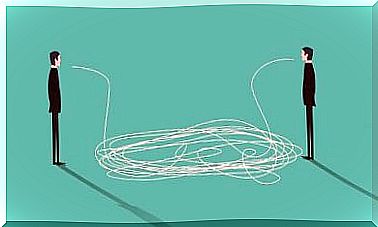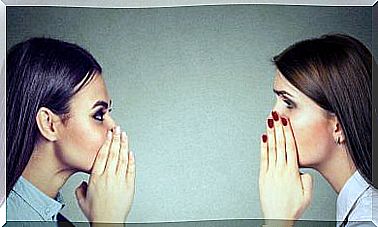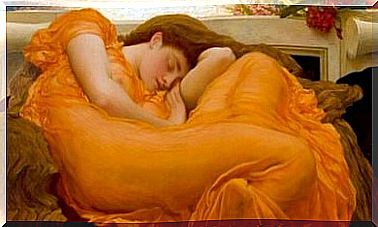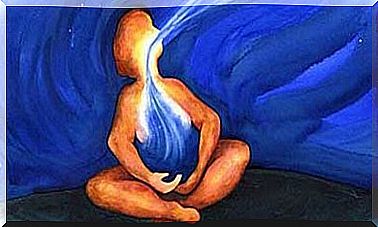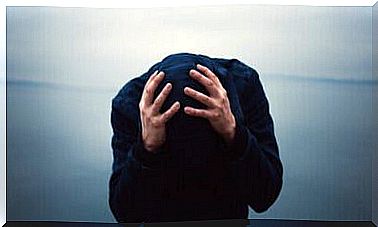The Different Types Of Insomnia: Causes And Treatment
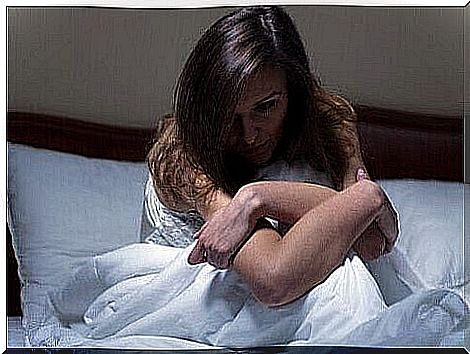
When we have trouble sleeping, we tend to think that we suffer from insomnia. But did you know that there are different types of insomnia, or insomnia? In fact, each of them requires different treatment. In this article we will focus on different types of insomnia and what treatment they require.
Insomnia is one of the main reasons why people go to primary health care, and it is a symptom of almost all mental disorders.
As with other common mental problems (such as anxiety and depression), many people misuse the term insomnia. For example, having trouble falling asleep for a day or two can not be considered insomnia. Being stressed and not being able to sleep well is also not insomnia. In the latter case, insomnia is just the symptom of a period of stress.
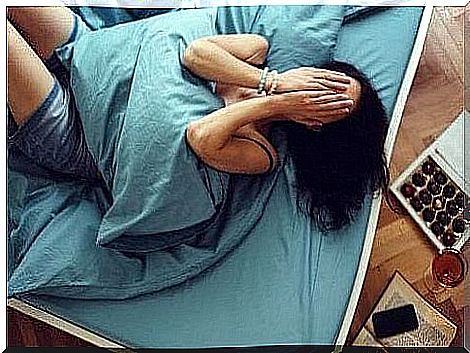
Types of insomnia
Insomnia is formally denominated primary insomnia, a sleep disorder with the following symptoms:
- Difficulty falling asleep for at least four weeks.
- Sleep problems that occur when you try to fall asleep, sleep or in the final sleep phases. You also have the feeling that you did not get a good night’s sleep.
- There is no obvious cause (traumatic brain injury, dementia or stroke) that can explain the sleep disorder (such as drug use, medications for certain conditions, an illness, etc.).
- There is no sign of a psychological disorder such as anxiety or depression.
There are three types of insomnia:
- Difficulty falling asleep, which is that it is difficult to fall asleep at the beginning of the night.
- Restless night’s sleep or fragmented sleep.
- Late insomnia or early morning awakening.
Therefore, in order to be correctly diagnosed with insomnia, you need to meet the criteria mentioned above. If you have any other problems that can cause insomnia, just treating the insomnia will not solve them. You need to make sure you address the main disorder to reduce sleep problems. Let’s dive a little deeper into the different types of insomnia.
Difficulty falling asleep
This is the most common type of insomnia. There is an inability to fall asleep when you go to bed. If you spend your day stressed and worried, it will be very difficult for you to disconnect and go to sleep.
In most cases, difficulty falling asleep is the body’s response to psychological discomfort, which is the real cause of the inability to fall asleep. However, you may also experience these problems when you change your sleep schedule.
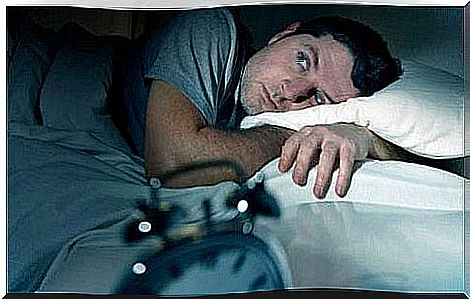
Treatment of insomnia during sleep
The recommended treatment for insomnia has different phases. First you need to start with sleep hygiene. When most people develop insomnia, they adopt unhealthy habits that aggravate the sleep disorder. Therefore, as a first step, the person must follow certain guidelines to adopt good habits and get rid of the bad, which is usually as follows: Go to bed → do not sleep → anxiety because you can not fall asleep.
Second, if the sleep hygiene guidelines do not help, the affected person must resort to other techniques. The mentioned techniques aim to link the connection between bedtime and inability to fall asleep, as well as the restlessness it causes.
For each case, psychologists design specific techniques and set specific goals so that the person can make changes. However, all therapeutic approaches aim to treat insomnia as a primary disorder. Thus, these treatments are performed only when other sleeping or mental disorders, such as anxiety, depression, OCD or bipolar disorder, are excluded.
On the other hand, if a patient is still unable to sleep after using psychological techniques, medication is the next step. The best option for treating insomnia is non-benzodiazepines. These are psychoactive substances that work very quickly and in a short time without having any anti-anxiety or residual effects.
In any case, a doctor must always monitor the treatment with such drugs. They will decide which drug is best for each person and how long the patient must take it.
Restless night’s sleep
Restless night’s sleep is a problem with staying asleep at night. In other words, a person suffering from this type of insomnia is able to fall asleep, but often they wake up in the middle of the night and can not fall asleep again. This makes the person who suffers from it feel that they have not been rested.
To diagnose restless night sleep, the specialist must rule out organic and physiological factors that may be causing it. For example, hormonal changes that can cause the person to wake up suddenly.
Waking up in the middle of the night is very common when the thyroid gland is not working properly, or in the case of women, when there are changes in their hormonal cycle.
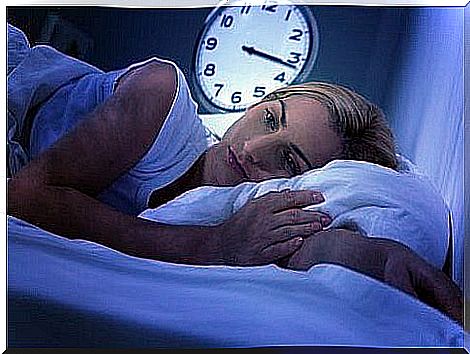
Treatment of restless night sleep
If other health problems cause restless night sleep, they should be treated first. Once controlled or ruled out, the treatment for this type of insomnia is largely the same as for insomnia.
In this case, the recommended medicine is a type of benzodiazepine that works throughout the night and allows the patient to sleep without interruption. Furthermore, there is no effective psychological treatment to reduce fragmented sleep. However, the role of a psychologist is fundamental.
Most people with fragmented sleep also have mental problems such as major depressive disorder. Therefore, short-term priority for the patient is to be able to sleep properly, and the goal is to deal with the psychological aspects that cause insomnia through therapy.
Early morning awakening
People with this type of insomnia can fall asleep and not wake up in the middle of the night, but can not sleep for more than a couple of hours. For example, they set the alarm at 07:00, but wake up at 5:00 and can not fall asleep again. This makes them feel tired, anxious or sleepy throughout the day.
Early morning awakening can be caused by depression and work-related stress. Depression can cause changes in the sleep cycle that cause the person to wake up before going to bed and then have trouble falling asleep again. A person can also suffer from this when their workload increases.
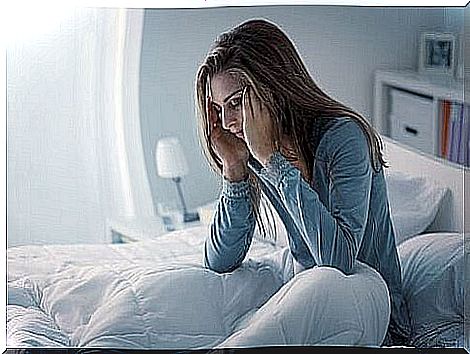
Treatment of insomnia upon awakening
The treatment consists of a combination of medications to prevent the person from waking up early, as well as psychological treatment to deal with their emotions.
The psychological approach is similar to that of other types of insomnia, but in this case it is necessary to cope with stress and emotions.
Although it may seem strange, if you wake up earlier than you should and can not sleep again, you should get up from your bed. This will help you feel more tired, and therefore it is a very effective technique to help you fall asleep. In addition, you will put an end to the connection between being in bed and the anxious feeling of not being able to sleep.
While treatment for early morning awakening is mainly psychological, a combination of medication and therapy is a better option for both restless night sleep and late insomnia.
